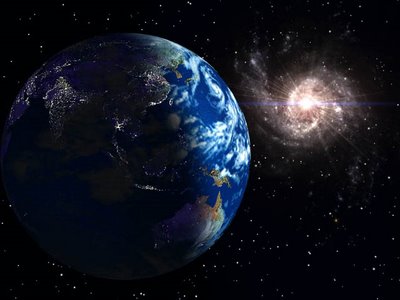Each year, fires burn millions of hectares of forest worldwide
The resulting loss and degradation of forested land is roughly equal to that caused by destructive logging and conversion to agriculture combined, and has wide-reaching consequences on biodiversity, health and the economy, among others.
Fires good and bad Fire is sometimes essential for forest regeneration, or provides tangible benefits for local communities. In other cases it destroys forests and has dire social and economic consequences.
Forest fires are a natural part of ecosystems in many, but not all, forest types: in boreal and dry tropical forests for example they are a frequent and expected feature, while in tropical moist forests they would naturally be absent or at least rare enough to play a negligible role in ecology.
When fires become a problem…
Fires become a problem when they burn in the wrong places, or in the right places but at the wrong frequency or the wrong temperatures. Fires in forests that burn under natural circumstances become a problem when those forests are used for a particular purpose, such as settlement or timber production.
Pervasive human influence
Globally, most forest fires are probably now directly or indirectly influenced by humans. But in many areas that are hot and dry for part of each year, where frequent fires would be expected, human influence has now become so pervasive that most fires are 'unnatural'.
Devastating to forests & humans
The immediate impact of forest fires can be devastating to human communities and forest ecosystems alike.
Fires can alter the structure and composition of forests, opening up areas to invasion by fast-colonizing alien species and threaten biological diversity.
Buildings, crops and plantations are destroyed and lives can be lost. For companies, fire can mean the destruction of assets; for communities, besides loss of an important resource base, fire can also lead to environmental degradation through impacts on water cycles, soil fertility and biodiversity; and for farmers, fire may mean the loss of crops or even livelihoods.
Devastating to forests & humans
The immediate impact of forest fires can be devastating to human communities and forest ecosystems alike.
Fires can alter the structure and composition of forests, opening up areas to invasion by fast-colonizing alien species and threaten biological diversity.
Buildings, crops and plantations are destroyed and lives can be lost. For companies, fire can mean the destruction of assets; for communities, besides loss of an important resource base, fire can also lead to environmental degradation through impacts on water cycles, soil fertility and biodiversity; and for farmers, fire may mean the loss of crops or even livelihoods.
Health hazards
Severe forest fires, such as those in Indonesia in 1997/1998 and in Australia in 2001/2002, bring critical and in some cases life-threatening levels of pollutants. The health of as many as 75 million people may have been adversely affected by the Indonesian fires, with some 40,000 hospitalized for respiratory and other pollution-related ailments such as asthma, bronchitis and pneumonia, as well as eye and skin problems. The total cost of the fires was estimated at US$9.3 billion.








